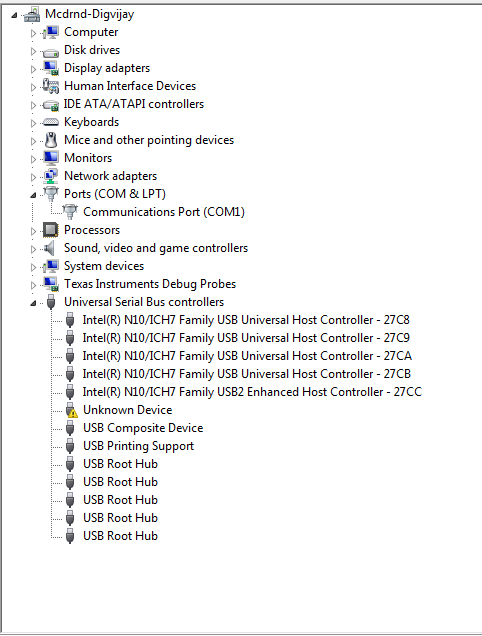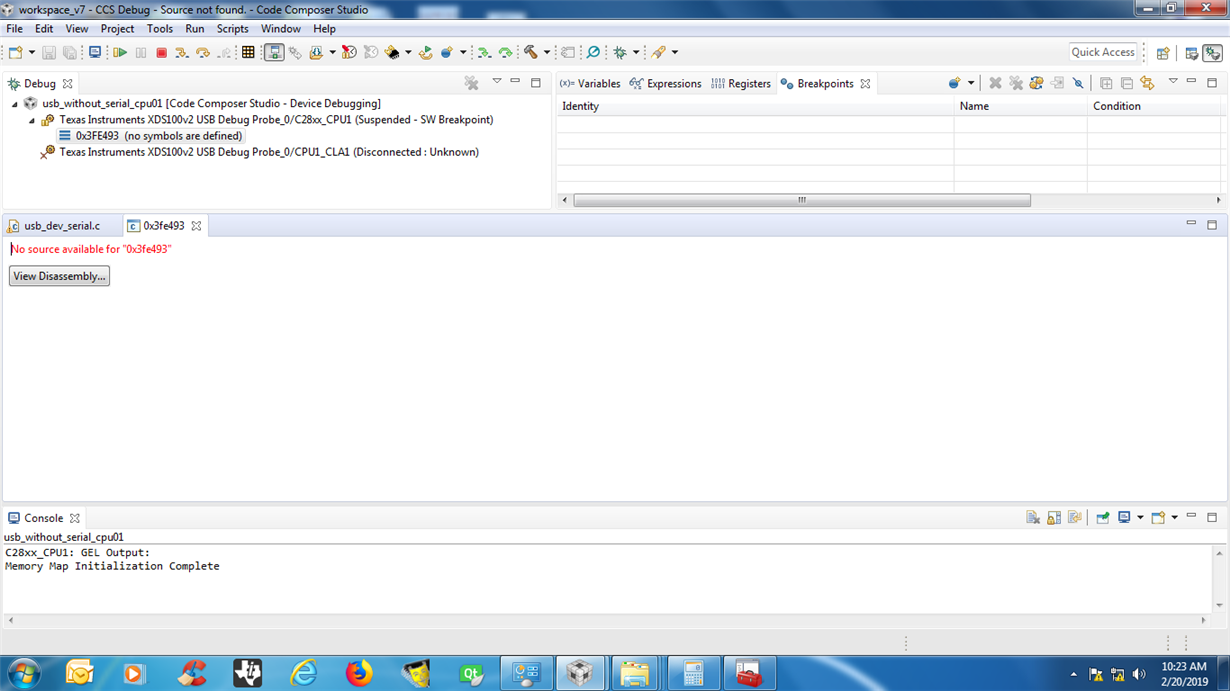Other Parts Discussed in Thread: C2000WARE
Respected sir,
I am trying to implement usb_dev_serial example. For that i need to install drivers given by TI in C2000ware. But i am not in a position to generate Software Publisher Certificate from CA. So is there any other way to implement USB on TMS320F28375S??
Regards,
Digvijay




